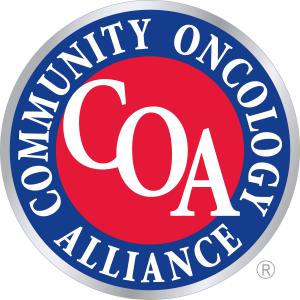CMS Cuts to Medicare Reimbursement on Top of Rampant Inflation, COVID, Sequester, and Reconciliation Pricing Reform Pose Major Threat to Cancer Care
When will CMS realize the folly of its ways? Mindless payment cuts have only been successful in driving up Medicare spending as hospitals consolidate medicine and rule the day.”
WASHINGTON, DC, UNITED STATES, July 8, 2022 /EINPresswire.com/ -- Statement from Ted Okon, Executive Director, COA— Ted Okon, COA
The proposed Medicare Physician Fee Schedule for calendar year 2023 (CY2023) released by the Centers for Medicare & Medicaid Services (CMS) is yet another in a series of relentless and mindless payment cuts that the agency has made to community oncology practices. CMS has proposed a 4.42% cut to the Medicare conversion factor along with additional cuts to oncology, imaging, and radiation.
The result of CMS cuts to Medicare reimbursement has been well documented as closing cancer clinics and forcing treatment into the more expensive hospital setting. To add insult to injury, these latest cuts come in the face of historic inflation, new COVID variants, the return of the sequester cut, and drug pricing reform in the Senate reconciliation bill that places providers in the middle of government and drug manufacturer negotiations. This poses a major and unprecedented threat to our nation’s cancer care system.
The proposed fee schedule also comes as Senate Democrats and the Biden administration advance the Prescription Drug Pricing Reform provisions in the reconciliation bill that implement the negotiation of drug prices in such a way that community oncology practices, as well as other specialty medical practices treating serious diseases, will face unbearable financial risk. This is because, as currently drafted, practices will be reimbursed at much lower negotiated rates relative to the underlying costs of drugs.
COA has repeatedly and correctly predicted that bluntly cutting Medicare payments leads to cancer practice closures and consolidations. As reimbursement has been continually ratcheted down over the last two decades, the chemotherapy delivered by independent community oncology practices declined by 64.3%. In subsequent years, 1,748 community oncology clinics and/or practices have closed, been acquired by hospitals, undergone corporate mergers, or reported that they are struggling financially.
When independent practices close, the care almost always moves into the much more expensive and less convenient hospital site of service. Studies have consistently shown that hospitals charge patients, insurers, and taxpayers much more for cancer treatments and care. Furthermore, access to care is threatened as cancer clinics and other specialty facilities close, especially in rural areas, due to financial pressures.
When will CMS realize the folly of its ways? Mindless payment cuts have only been successful in driving up Medicare spending as hospitals consolidate medicine and rule the day. It is time for Congress to stand up and do what is right to protect community oncology providers.
###
About the Community Oncology Alliance: The Community Oncology Alliance (COA) is a non-profit organization dedicated to advocating for community oncology practices and, most importantly, the patients they serve. COA is the only organization dedicated solely to community oncology where the majority of Americans with cancer are treated. The mission of COA is to ensure that patients with cancer receive quality, affordable, and accessible cancer care in their own communities. More than 1.5 million people in the United States are diagnosed with cancer each year and deaths from the disease have been steadily declining due to earlier detection, diagnosis, and treatment. Learn more about COA at communityoncology.org.
Drew Lovejoy
Community Oncology Alliance
email us here


